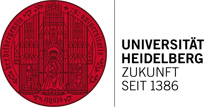Ruperto Carola Approved for DFG Funding
Heidelberg University succeeded in gaining funding from the German Research Foundation (DFG) in the latest approval round for three, internationally visible collaborative research centres. In physics, the collaborative research centre (CRC) studying isolated quantum systems in experimental and theoretical investigations will continue its work in the second funding period (CRC 1225). Funding has also been extended for two research consortia which are organised as transregional CRCs, each with several participating universities: Scientists of the Medical Faculty Heidelberg along with partners in Freiburg and Munich are involved in hepatitis research (CRC/TRR 179). In the molecular life sciences, researchers in Heidelberg and Berlin are investigating the coordination of signal transmission in living cells (CRC/TRR 186). DFG funding for the upcoming four-year period for all three consortia totals more than 40 million euros.
CRC 1225, “Isolated Quantum Systems and Universality in Extreme Conditions” (ISOQUANT), is focused on a field of research of major importance for numerous applications in physics. In the first funding phase, the researchers in CRC 1225 were able to uncover new relationships between very different physical systems. For example, laboratory experiments with ultracold atoms point to conclusions about the dynamic properties of matter in the early universe shortly after the Big Bang. The results open up new possibilities in quantum simulation, whereby the properties of different systems can be mapped onto a “reference system” that can be studied in the laboratory. Spokesperson of the ISOQUANT CRC is Prof. Dr Jürgen Berges, researcher at the Institute for Theoretical Physics of Heidelberg University. The DFG is supporting CRC 1225 with approximately 14.3 million euros.
The researchers working in CRC/TRR 179 “Determinants and Dynamics of Elimination versus Persistence of Hepatitis Virus Infection” are studying infections caused by the five medically relevant hepatitis viruses to determine the factors decisive for virus elimination versus chronicity of infection. Thus far, research in this area has focused on individual signalling pathways or molecular factors, but did not consider sufficiently the interaction between the infected organ and the antiviral immune response, according to Prof. Dr Ralf Bartenschlager, spokesperson of the transregional CRC, who is Director of the Molecular Virology Department at the Centre for Infectious Diseases of Heidelberg University Hospital and speaker of the research programme Infection, Inflammation and Cancer at the German Cancer Research Center. Therefore, by applying an integrative approach, researchers in CRC/TRR 179 are studying these interactions with the aim to develop strategies to overcome chronicity of hepatitis virus infections. Research partners in the transregional collaborative research centre include the University of Freiburg and the Technical University of Munich. The consortium will receive funding in the amount of approximately 13.8 million euros.
With locations in Heidelberg and Berlin, the work of CRC/TRR 186 “Molecular Switches in the Spatio-temporal Control of Cellular Signal Transmission” in the field of molecular biology focuses on the spatial and temporal coordination of signal transmission processes in living cells that play a pivotal role in the functionality of biological systems. In the initial funding period, the investigators of the consortium used new chemical biological tools and single-molecule studies in intact cells to shed light on a diverse range of essential biological processes such as neurotransmission – the transmission of information between nerve cells – as well as the cellular release of so-called pro-angiogenic signalling molecules. “The successful concept of CRC/TRR 186 will be further expanded during the next four years, adding new biological questions and as yet uninvestigated molecular switches,” explains Prof. Dr Walter Nickel from the Heidelberg University Biochemistry Center (BZH) and spokesperson of the transregional collaborative research centre. In the second funding period, CRC/TRR 186 will receive DFG funding in the amount of approximately 13.5 million euros.

